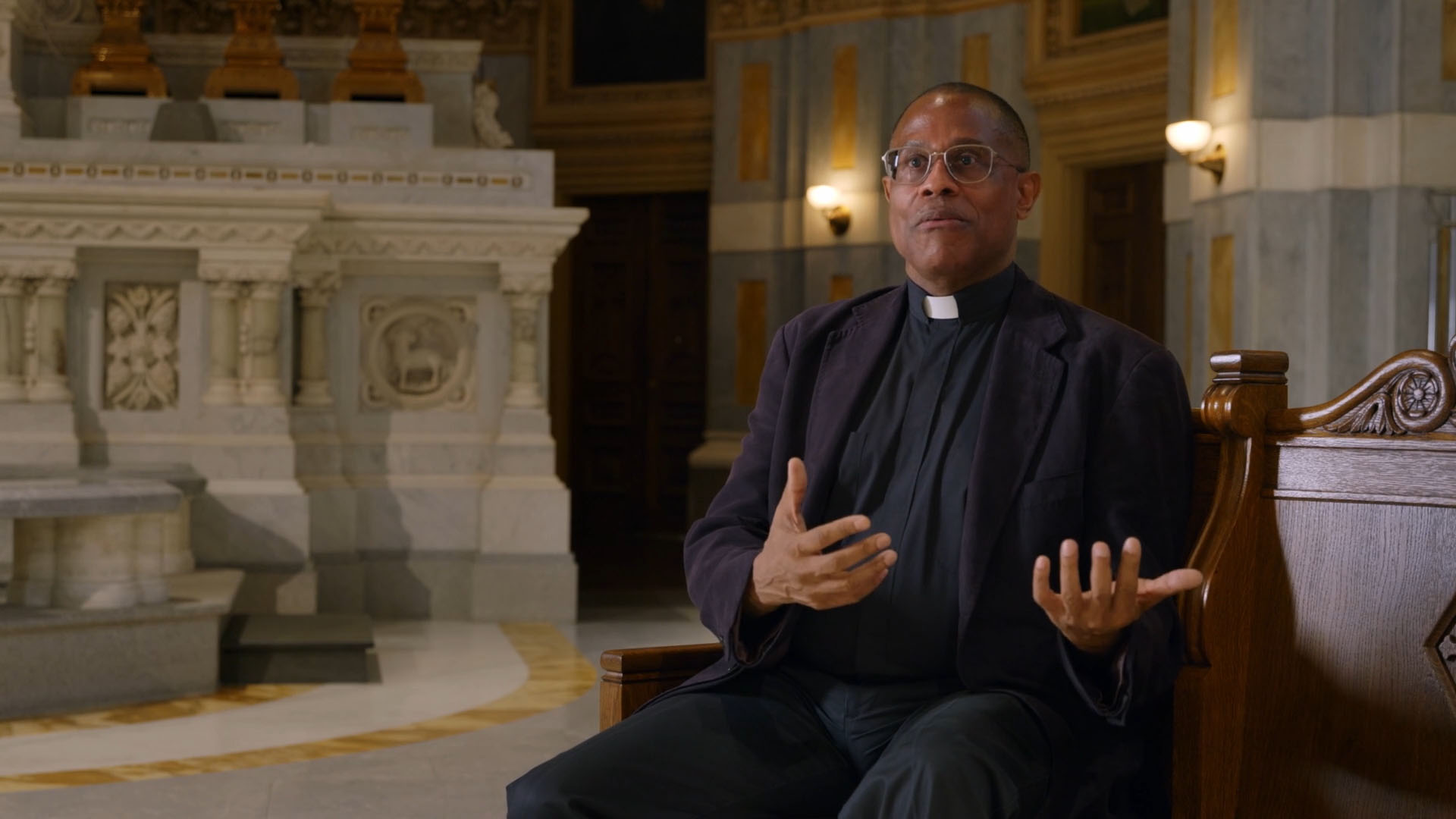I am a priest who is publicly open about belonging to the LGBTQ community. As a gay man, I was shocked and saddened by the Holy Father’s reported use of an offensive slur during a discussion with Italian bishops. While ostensibly justifying a policy of refusing to accept gay men into seminaries, the pope reportedly stated that there was too much “frociaggine” in seminaries.
Let’s be clear about the slur that was used so we also understand the controversy. The word is an offensive term often employed in a pejorative or derogatory manner to refer to gay men, one vulgar enough not to be translated here.
In response, the Vatican stated that that the pope was aware of these reports and, while not directly confirming that the pontiff used the offensive word, stated, “The pope never intended to offend or express himself in homophobic terms, and he apologizes to those who felt offended by the use of a term, as reported by others.”
To understand the magnitude of the pope’s use of the slur, we must make a distinction between the intent and the impact of his words.
I welcome the pope’s apology. I am relieved that he did not intend any offense. But any fair observer must conclude that this incident has severely compromised his historic outreach and unprecedented openness to members of the LGBTQ community.
To understand the magnitude of the pope’s use of the slur, we must make a distinction between the intent and the impact of his words. Some seek to downplay all of this as only a matter of an unfortunate choice of words or a careless use of colloquial language. Others view this as nothing more than an elderly man’s imprecise grasp of a language that is not his native tongue. But others point out that the pope has been speaking Italian since his childhood.
All of this may be true. But regardless of the speaker’s intent, such language is dehumanizing. Slurs and offensive names are perhaps too easily dismissed by those who are not their targets. But make no mistake: Derogatory slurs dehumanize sexual minorities. They call our humanity into question.
Moreover, the harm goes beyond those who were directly offended by the pope’s homophobic slur. The pope’s use of such language gives support to public policies that endanger the lives of sexual minorities around the world. Those who seek to exclude gay, lesbian and trans people from social life and juridical protection can—and will—take comfort and solace from the Holy Father’s words.
Yes, I know that Pope Francis has called for the decriminalization of homosexuality. Yet his use of offensive terminology cannot but undercut his message that all possess an “infinite dignity” that should be respected by all. More than an apology is needed.
Derogatory slurs dehumanize sexual minorities. They call our humanity into question.
The pope’s apology, while welcome and necessary, raises further questions and concerns. For one, these remarks were reportedly made in the context of a discussion of whether openly gay men should be admitted to the seminary. Some state that Francis’s foreclosure of the issue was simply reiterating the official policy of the church, one clarified by the Vatican in 2005 and affirmed again in 2016.
However, this Vatican policy ignores the reality that there are now, and always have been, many gay priests and gay bishops who serve the church generously and faithfully. Refusing to admit gay men to the seminary implies that they suffer moral defects or deficits that heterosexual men do not. The policy presumes there is a level of sinfulness or moral deficiency in gay men that straight men lack that would automatically disqualify gay men from the priesthood.
Yet my experience of 40-plus years in the priesthood says this is simply not true. People of all sexual orientations live celibacy well. Priests of all sexual orientations struggle with living celibately at times. Sometimes these struggles give rise to scandal, from both gay and straight clergy. And “closed, gossipy cliques”—which some state are the real concern behind Francis’s use of the offensive word—are not unique to gay men. Nor is a blanket ban on all gay men a just solution to such a problem.
Sexual orientation is not the issue that determines ministerial effectiveness, nor should it be the sole reason for barring men from seminaries or religious life.
If it is well known that there are many same-sex-oriented men who serve the church responsibly as ordained leaders, then what is the real issue? I believe that the controversy over the pope’s use of a dehumanizing slur, and the refusal to admit openly gay people to the seminary, points to the deepest question that faces the church: Are gay, lesbian, bisexual, trans and queer people fully equal members of the body of Christ? The debacle over Francis’s remarks betrays the obvious answer: Not yet.
Sexual orientation is not the issue that determines ministerial effectiveness.
Francis has become fond of stating that “everyone” is welcome in the church, that the church’s embrace extends to all. “Todos, todos, todos,” he exclaimed at World Youth Day. But his words and the Vatican policy on admission to seminaries reveal that all may be welcome, but not equally welcome. Or welcome only on the condition that they accept that there is something flawed about them, even if they live celibately. And if they should happen to be ordained, then they are to live with no public acknowledgment of their sexuality.
This brings attention to another question behind the pope’s remark: How welcoming can the church really be when it officially describes non-heterosexual sexuality as “objectively disordered,” a term that focuses on the moral status of sexual acts rather than on the self-understanding of those whom it describes?
If one truly believes that LGBTQ sexuality is “less than” other forms of sexual being, then the use of slurs, insults and other forms of dehumanization cannot be surprising.
During an interview on this topic, a BBC reporter asked me a personal question: Do you as a gay priest struggle with how your highest leadership speaks of you? And what does the pope need to do to recover from the damage done by his remarks?
I answered that I do not know of any LGBTQ Catholic who has not and does not wrestle with their place in the church. And that I felt shocked, even somewhat betrayed, that a pope would speak this way about people like me, even if one accepts that he did not intend to speak maliciously. To repeat, to understand the magnitude of this event, we have to recognize the distinction between the intent and the impact of his words.
Yet I also believe that all of this is part of the birth pains of a new openness in the church. In every Christian denomination that has now moved to a more fully accepting stance for LGBTQ persons, gay clergy had previously been ostracized. In these churches, ministers who were not heterosexual labored under the assumption of being morally defective and psychologically disabled. They were often held suspect and even dismissed from the ministry.
Yet it was because such ministers continued to serve their churches, and because LGBTQ believers continued to belong to the church despite the official opposition they faced, that their faith communities arrived at both more accurate understandings of human sexuality and deeper insight into the movement of the Spirit within the church.
I believe the pope needs to listen directly and with an open heart to gay priests who faithfully serve the people of God.
In other words, what gives me some measure of solace is that the Catholic Church is going through the same struggles that Episcopal, Lutheran, Methodist, Presbyterian and other Christian faith bodies endured as they wrestled with deeper insights into human sexuality. I take comfort that such trials are part of the at-times sad and messy, yet necessary, process of change. What we are experiencing are those birth pains that occur as we grow into deeper fidelity to the Spirit of God.
What, then, do I believe the pope should do? I believe the pope needs to listen directly and with an open heart to gay priests who faithfully serve the people of God. He needs to accompany us, and smell like this part of his and the Lord’s flock. He needs to hear of our joys and trials, and attend to our heartaches and our deep satisfactions. He needs to be inspired by us and our at-times heroic fidelity. And we need to be inspired by him, to listen to his perspective as one who is also committed to the service of God’s people.
Such an example of deep synodal accompaniment and spiritual listening would do more to heal the church than the apologetic words of a papal press release. Listening to our voices would be a major step toward becoming a church where all, where todos are truly welcome.
This essay first appeared in America on May 29, 2024.



